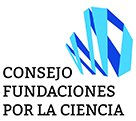The role of language in health sciences is fundamental in the everyday routine of health professionals, and deserves much more importance than it usually receives. It is accepted that the dissemination of scientific information, either to other professionals through scientific publications and oral presentations, or to the public through the media, should be an obligation of all researchers or health professionals. Many of these health professionals and researchers also base themselves on language for learning.
Therefore, on 14 May 2014, the Esteve Foundation, in collaboration with the Universidad de Salamanca, organized a round table on Medicine and language. The importance of language in the biosanitary environment. 28 experts in different fields of scientific dissemination took part to give an updated view on the importance of language in the field of biomedicine, and to highlight highly topical issues, innovations and future possibilities.
The session was chaired by Bertha Gutiérrez Rodilla, professor of medical language at the Universidad de Salamanca, and Fernando A. Navarro, one of the greatest experts in our country on medical translation, and author of Diccionario crítico de dudas inglés-español de medicina (2005) and Traducción y lenguaje en medicina (2007).
The round table was divided into four sections and started by discussing language in biosanitary research. Juan Aréchaga, Professor of cell biology at the Universidad del País Vasco and Director of the International Journal of Developmental Biology, defended the use of Spanish in Spanish journals. However, he underlined that Spanish will only become an international science language if it is done from journals of international scope. He also called on publishers for greater professionalism, and not to restrict themselves just to covering costs, but also to generating profits.
Jesús Porta Etessam, Director of the cultural department of the Spanish Society of Neurology, discussed the dark side of scientific publications, which is no longer exclusively the transmission of knowledge, but now has other types of interest. These include scientific prestige or the academic leadership of authors, or the financial profit of publishers. "Many factors that influence what is published are not necessarily related to the quality of research", he stated. Lastly, he recommended Spanish journals to use all their resources and technology to promote their authors.
In the second section, the paediatrician José Ignacio de Arana started on the subject of language processing in assistance work. "Our language should come down from the pinnacle of science to colloquial language", he advised his colleagues. He also recommended them greater clarity and accuracy when speaking to their patients, particularly in the prognosis. To underline this, he quoted Einstein: "If you want to tell the truth, do it simply and leave elegance to the tailor".
Bárbara Navaza, of the International Medical Interpreters Association, then went on to illustrate two disciplines – health care interpretation and cultural mediation – which are practically unknown among health professionals, but of vital importance to guarantee doctor-patient communication, in a country with over six million foreign residents.
In the afternoon, Josep-Eladi Baños and Elena Guardiola, both from the department of experimental sciences and health of Universitat Pompeu Fabra, discussed the third section of the round table. "Professors interested in the suitable use of language are in no-man's land", they confessed after claiming responsibility from professors in assessing their students, both in form and content. "Speaking and writing correctly should not be a secondary objective of university professors", they concluded.
Another two experts on handling medical language in the classroom, Bertha Gutiérrez (Universidad de Salamanca) and Carmen Quijada (Casa de las Lenguas of Universidad de Oviedo), reflected on its presence in the course syllabuses. Although medical terminology does not have the position it deserves in medicine and dentistry of the Universidad de Salamanca, both have fought hard to design two terminological skills, which students should have mastered by the end of the degree, and for a future subject on biosanitary language.
The last section focused on the media. Gonzalo Casino defended the work of scientific journalists, who have the obligation of communicating and making specialized information accessible. To do this, he underlined the style guide of The Economist, and recommended not to use scientific vocabulary, if there is an alternative in everyday language. Casino proposed greater specialization of professionals, and drawing up a style guide of medical journalism, with a glossary of the most problematic terms, as a way of stopping the decline of scientific information in the media.
Javier González de Dios, who is responsible for the blog Pediatría basada en pruebas, spoke in last place on the possibilities of Internet and social networks. He underlined that the so-called ICT (Information and Communication Technologies) are here to stay, and that scientists have no other option than to join them, as long as the language is as accurate as that used in other media. According to González de Dios, medicine of the 21st century goes by social networks and the Web 3.0.
All speeches and discussions of the round table Medicine and language. The importance of language in the biosanitary environment will form part of a new Monograph from the Esteve Foundation.
















